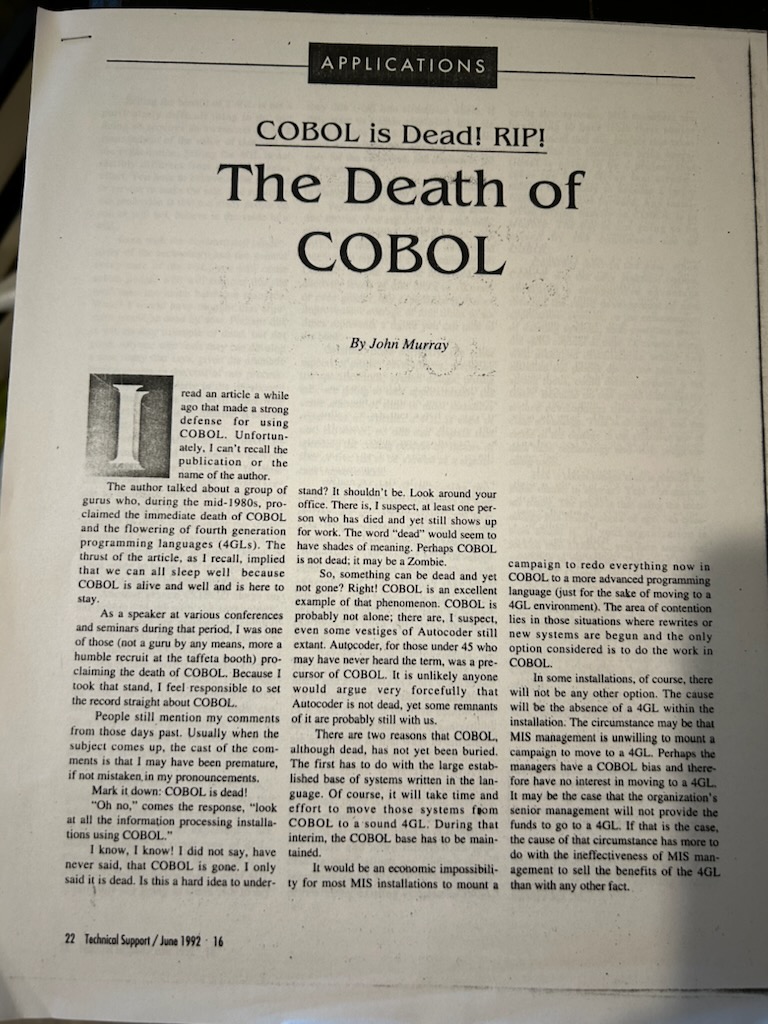Cobol Has Been "Dead" For So Long, My Grandpa Wrote About It
2024-10-01
In June of 1992, my grandfather had an article published in Technical Support magazine proclaiming the death of Cobol. It naturally contains some of the buzzwords of the time, such as fourth-generation programming language (4GL). If you're not familiar with that term, suffice it to say that the Wikipedia page lists several examples, and Cobol has outlasted most of them.
There's a text version of the article available in archives of the NaSPA: http://www.naspa.net/magazine/1992/t9206003.txt
The word dead would seem to have shades of meaning. Perhaps Cobol is not dead; it may be a Zombie. So, something can be dead and yet not gone? Right! Cobol is an excellent example of that phenomenon. COBOL is probably not alone; there are, I suspect, even some vestiges of Autocoder still extant. Autocoder, for those under 45 who may have never heard the term, was a precursor of COBOL. It is unlikely anyone would argue very forcefully that Autocoder is not dead, yet some remnants of it are probably still with us.
As you might notice, he had a dry wit. There was one time I was able to reflect one of his retorts right back at him, and my grandma was so proud; the student had become the master.
There was one thing that kept the Cobol zombie shambling along, and that's the Y2K problem. Make no mistake: as much as it was hyped in the news at the time, and as much of a nothingburger it seemed to be, Y2K was a gigantic problem. It necessitated training up a new generation of Cobol programmers. That may have kept Cobol going for a while longer.
These days, I avoid the term "dead" for programming languages at all. If they ever had a large installed base, then they never die. They have long tails where they trail off into obscurity with no junior programmers learning it.
My grandpa died on Sept 1, 2024 at 91 years of age. Officially, he died of pneumonia. My grandma had died the previous April, and he had asked not to receive any treatment.

